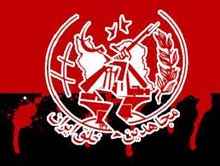Iraqi 2013 provincial election, in which the State of Law Coalition acquired 97 seats out of 369 seats and won a significant victory in the first rank, demonstrated that full-scale efforts of Baathist-Mujahedeen band to  undermine Maliki, a campaign that had been started from months ago, have had no considerable influence in Iraqi politics.
undermine Maliki, a campaign that had been started from months ago, have had no considerable influence in Iraqi politics.
The State of Law won 20 seats out of 58 seats in Baghdad and the al-Najafi List with only 7 seats took the second rank. This failure implies that radical political coalition against the Maliki government is completely out of the picture and extremists could no longer continue the anti-security movement and terrorist activities.
In 7 of the 12 Iraq’s provinces, The State of Law ranked first, and in one province it equaled with ISCI. This success reveals the maximum popular base of The State of Law in Iraq, and it is a very important parameter to predict outcome of the parliamentary elections that will be held 8 months later.
An important point in this regard is that this election was confirmed and admired by international institutions and official observers; Office of UNAMI in Iraq issued a statement saying Iraqi elections were held according to international standards. Office of the United Nations had adopted the necessary measures to prevent any fraud.
Martin Kobler on April 20 visited the Rusafa electoral center in Baghdad and oversaw counting process. One day after the election, Mr. Kobler issued a statement addressing the Iraqi people and congratulated healthy and successful election. Mrs. Lyndall Sachs, Australian ambassador in Iraq, as an international observer visited electoral centers in Najaf and described the election atmosphere excellent.

